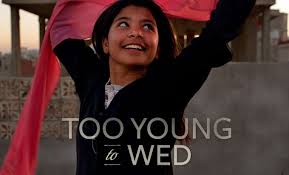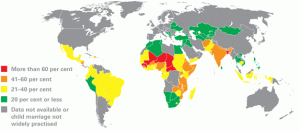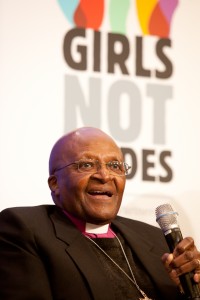Let Girls Be Girls, Not Brides and Wives
Mar 11th, 2014 | By admin | Category: Youth RightsBy Suzanne York, www.howmany.org
If there was ever an issue that should galvanize the international community to take action – no matter politics or religion – child marriage has to be near the top of the list.
One in three girls in the developing world is married by age eighteen. The United Nations states that by 2020, 142 million girls will be married by their 18th birthday if current trends continue.
In the report Women’s Live and Challenges” Equality and Empowerment Since 2000, released last week by the U.S. Agency for International Development, researchers found that child marriage among women has not decreased substantially since 2000.
In a sample study of women and men in 47 countries, the proportion of women who marry as children ranges from 8% in Armenia to 75% in Bangladesh.
By the Numbers
Child marriage cuts across all boundaries, be it country, culture, religion, or ethnicity – 46% of girls under 18 are married in South Asia; 38% in sub-Saharan Africa; 29% in Latin America and the Caribbean; 18% in the Middle East and North Africa; and in some communities in Europe and North America.
Human Rights Watch has analyzed the state of child marriages in Malawi and reported some frightening results. Malawi has the eighth highest rate of child marriage in the world, with half of girls marrying before the age of 18, according to the United Nations. Some marry as young as 9 or 10.
Despite Malawi law prohibiting sex with a girl or boy younger than 16, the state constitution allows a 15-year-old child to marry.
The total fertility rate in Malawi is 5.6 and the total population is currently around 16.5 million; as of 2012, 52 percent of the population was under 18 years old.
Child marriage, states Human Rights Watch and many others, has a negative impact on girl’s and women’s realization of key human rights, including their rights to health, education, to be free from physical, mental, and sexual violence, and to marry only when they are able and willing to give their free and full consent.
In Malawi and many countries with high rates of child marriage, such as India, culture is a main factor. Human Rights Watch found child marriage to be “deeply entrenched in Malawi’s traditions and patriarchal cultures, which encourage early sexual initiation and marriage and women’s subordination in society, but stigmatize adolescent pregnancy.”
Changing Course: Empowering Girls
Education is key, for women and girls, men and boys. UNFPA says that girls with no education are over three times more likely to be married before age 18 than those with secondary or higher education. Last year, Malawi’s parliament passed an education bill that makes education universal and compulsory for all. It is just one of many steps needed to empower girls, but everyone needs to clearly understand the impacts of child marriage on children.
What else can be done? According to Girls Not Brides a “global partnership” of more than 300 civil society organizations committed to ending child marriage, some answers include:
- enacting and enforcing laws that set a legal minimum age for marriage;
- ensuring that voluntary family planning programs integrate efforts to address child marriage and support married girls;
- bringing men and traditional leaders on board (read a message from Archbishop Desmond Tutu to men and boys);
- introducing incentives (microfinance schemes to help girls support themselves and their families);
- mobilizing and educating communities (e.g., street theatre, bicycle rallies, encouraging community dialogue);
- raising awareness in the media (raise awareness among the general public, pressure governments and community leaders to take action to end the practice).
In the words of Archbishop Tutu, “child marriage is a traditional practice that happens today simply because that is the way things have been done for many generations.”
This means that with awareness, education, and empowerment, a new and positive tradition can replace an old one, and allow girls to enjoy being girls for a little bit longer.
Suzanne York is a senior writer with the Institute for Population Studies.



